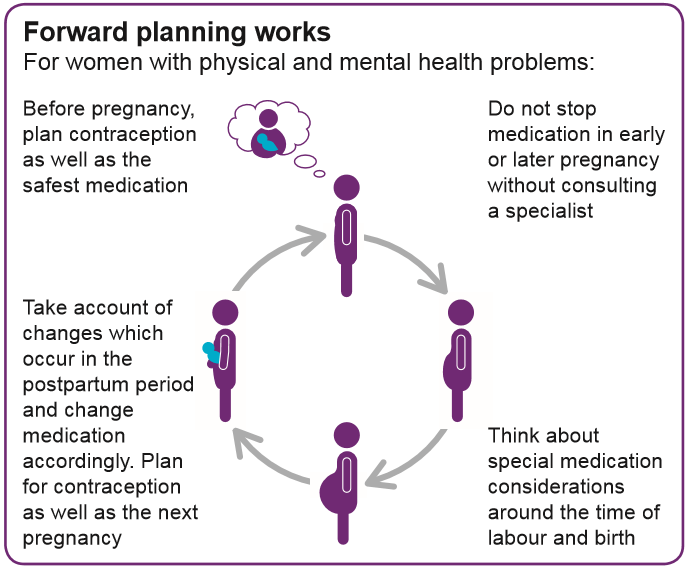It is important to optimise your heath before becoming pregnant, forward planning can be key to a healthy pregnancy and baby.
90% of women will become pregnant within two years. The remainder may require some assistance, in this instance contact your GP.
In this section:
Healthy Weight Smoke Free Alcohol and Caffeine Review Medications Folic Acid and Other Supplements Healthy Working Environments Cervical Screening Zika Virus
Healthy Weight
Being overweight or underweight can increase your risk of pregnancy related complications, it is sensible to aim for a healthy weight as soon as you start to plan for a baby. If your BMI is between 18.5-25 before becoming pregnant this will reduce the risk of pregnancy complications.
If your BMI is over 30 you may find it more difficult to become pregnant. During your pregnancy you are at increased risk of developing complications including miscarriage, diabetes, pre eclampsia, preterm delivery, and requiring a caesarean section. After your baby is born you are also at increased risk of heavy bleeding, infection and developing blood clots.
If your BMI is less than 18, you may find it more difficult to become pregnant. During your pregnancy you are at increased risk of miscarriage and preterm delivery. Your baby may have a low birth weight and is at increased risk of developing additional conditions.
Smoke Free
Being smoke free is so important with regards to pregnancy, smoking increases your risk of many devastating pregnancy related complications. In Forth Valley we have many resources to help you and your family achieve a smoke free environment. It is important for both partners to be smokefree when trying for a baby as smoking may affect fertility. Men who smoke have a lower sperm count and risk damaging their sperm. Women who smoke can find getting pregnant takes longer.
Smoking related complications during pregnancy include miscarriage, stillbirth, preterm birth, reduced growth, cleft lip & palate, placental abruption (where the placenta separates from the mothers womb) and following birth sudden infant death syndrome.
Alcohol and Caffeine
Although the risk to your baby is small if you are consuming only small amounts of alcohol before finding out you are pregnant, in order to give your baby the best possible start it is safer not to drink alcohol whilst trying to become pregnant. Babies who are exposed to alcohol during pregnancy are at risk of developing fetal alcohol spectrum disorder, this is characterised by reduced growth, facial abnormalities, learning and behavioural difficulties.
High levels of caffeine have been associated with miscarriage and low birth weight babies, it is recommended caffeine intake is limited to 200mg per day. You may be surprised to know caffeine can be found in the following:
- Chocolate
- Cola/Irn-Bru
- Energy Drinks
- Tea
- Bars of Chocolate
Review Medications
If you are currently taking any medications it is important to make an appointment to discuss this with your GP, together you can plan the safest medicines and make considerations to your bodies changing needs during pregnancy.
DO NOT STOP or CHANGE medication without discussion with your doctor.
Folic Acid and Other Supplements
Folic acid reduces the risk of your baby developing neural tube defects which can cause spina bifida and other conditions. It is recommended you take 400mcg as soon as you stop contraception.
You may need to take the higher dose of 5mg if you have a BMI over 30, have diabetes, coeliac disease, or have a family history of neural tube defects. If you require the higher dose please discuss this with your GP or family planning clinic.
Vitamin D (10 micrograms / day) is also recommended during pregnancy; it is available in many multivitamins. Please be aware not all multivitamins are suitable during pregnancy. It’s important to take a pregnancy specific multi vitamin as high levels of vitamin A can harm your baby.
Healthy Working Environment
If you have concerns regarding your work environment, for example hazardous substances or radiation, or if you are exposed to chemicals or have to fly a lot, further information is available from the Health and Safety Executive.
Cervical Screening
It is recommended for you to continue with routine cervical screening whist trying to become pregnant.
Zika Virus
If you have travelled to an area with active zika virus transmission, it is recommended that you avoid becoming pregnant:
- Women – 8 weeks
- Male partner/sperm donor – 6 months
More information is available from Health Protection Scotland.


